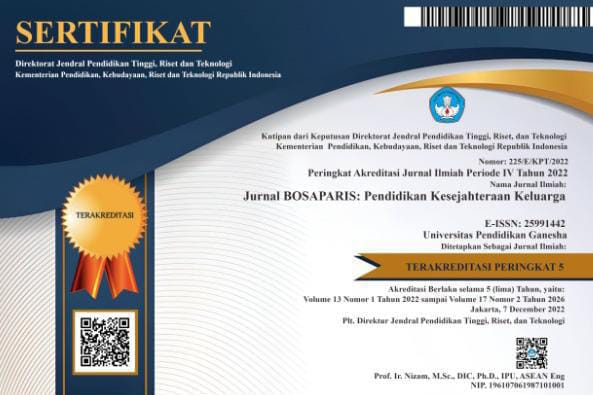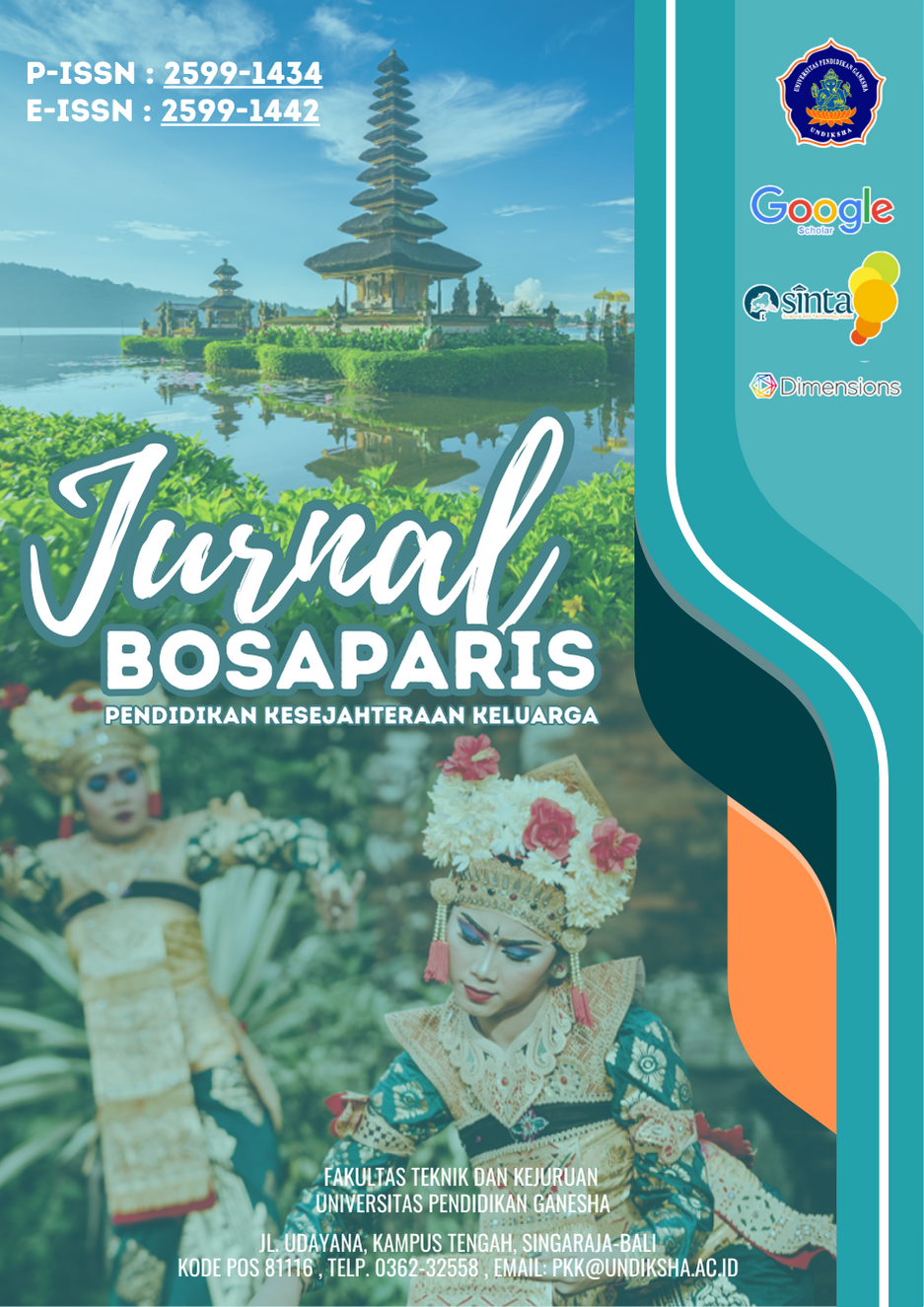KAIN TENUN NGGOLI DI KECAMATAN BELO KABUPATEN BIMA-NTB
Keywords:
Kain Tenun, motif, Motif TenunAbstract
The purpose of this research is to describe (1) the process of making motifs on nggoli woven fabrics, and (2) the symbolic meaning contained in nggoli woven motifs. This research used descriptive qualitative research. subjects of nggoli woven fabric and research object 1) identification of the making of nggoli woven fabric motifs that only appear on one side, 2) symbolic meaning in each nggoli woven fabric motif in Belo District, Bima Regency, NTB. Data collection used the observation method and interview method to craftsmen of nggoli woven fabric in Belo District, Bima Regency. The research instruments used observation sheets and interview sheets. Data analysis used descriptive analysis with 3 stages, namely data reduction, data presentation, and conclusion/verification. The results in this study showed (1) the process of making nggoli weaving motifs at Kecamatan Belo Kabupaten Bima-NTB the weavers adding a tool called sui to separate or as back rest the selected warp threads and separate them as a place for insertion/embroidery motif threads, as well as the technique of making motifs that were different from other weaving, in which the motif threads was only embroidered or inserted on the warp threads that have been previously separated so that the resulting motif appears on one side only. (2) The meaning of each nggoli at Kecamatan Belo Kabupaten Bima-NTB woven cloth motif contains strong religious and moral values and there are 8 nggoli woven motifs consisting of 2 types, namely: (a) floral motifs; samobo flower (useful for others, satako flower (conditioning for the life of the people of Bima), aruna flower (ninety-nine attributes of Allah SWT), kakando (patience and tenacity in facing life), geometric motifs; nggusu tolu (highest authority belongs only to Allah SWT), nggusu upa (openness in life), pado waji (power also belongs to leaders), gari (honesty and firmness).
References
Artikel Ulfa Sofiani-1815011014
Downloads
Published
Issue
Section
License
Copyright (c) 2024 Jurnal BOSAPARIS: Pendidikan Kesejahteraan Keluarga

This work is licensed under a Creative Commons Attribution-ShareAlike 4.0 International License.

Jurnal BOSAPARIS : Pendidikan Kesejahteraan Keluarga is licensed under a Creative Commons Attribution-ShareAlike 4.0 International License.











